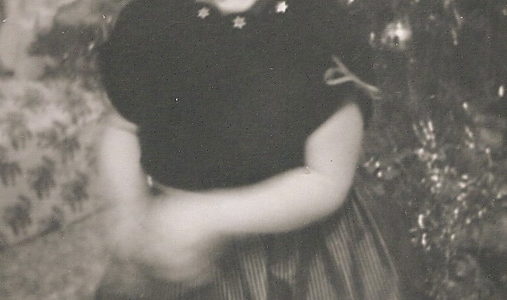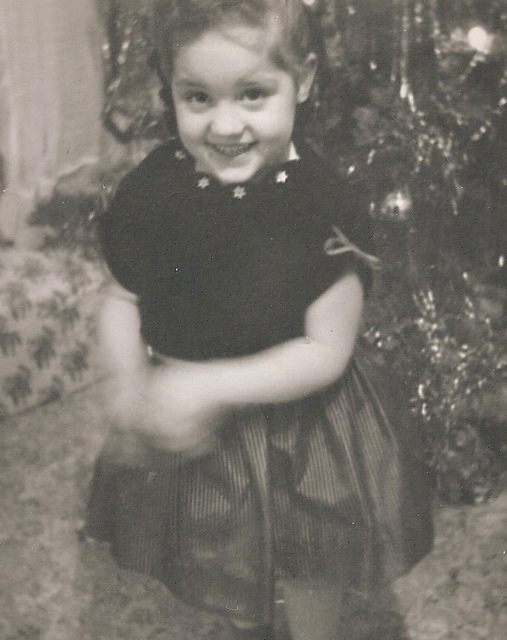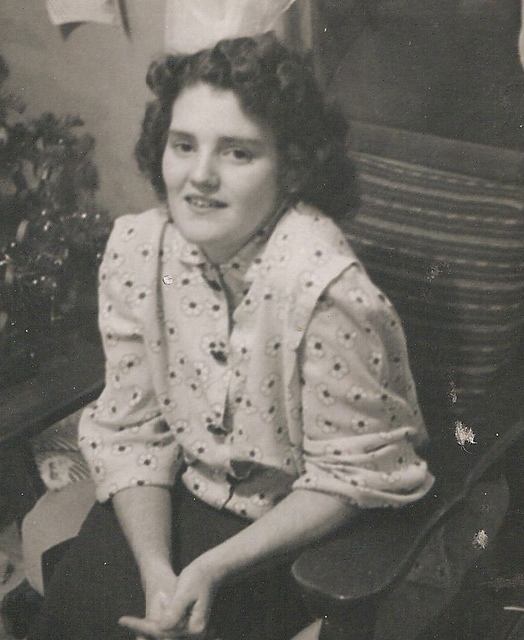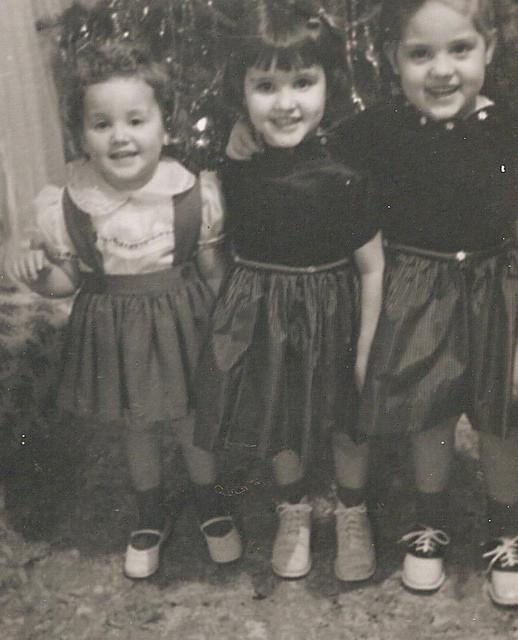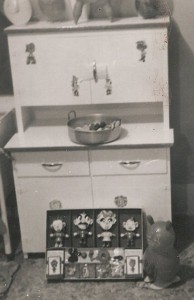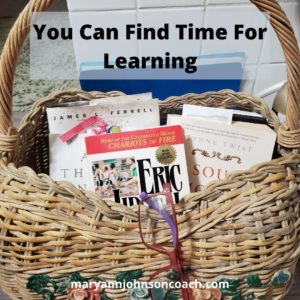 I had a mom call me in tears. She couldn’t figure out how to continue her education and still wear all the other hats that she must wear. She wanted some advice.
I had a mom call me in tears. She couldn’t figure out how to continue her education and still wear all the other hats that she must wear. She wanted some advice.
I could relate. I love learning, but I have difficulty even sitting through an online class for an hour without being interrupted. As a full-time caregiver, I am on call 24/7.
Going back to school isn’t realistic for everyone. There is a time and season for formal education. Even taking one class may not be something that fits your life right now. So, what can you do to keep your brain from turning into mush? I’m joking, but it can feel like that some days.
If this isn’t your time and season for formal education or even classes online, I suggest you read excellent books. When I gave that advice to this young mother, she replied, “I never have time to read!”
I know how that feels. Remember, I am a full-time caregiver in a four-generation home. It is a challenge to take a ten-minute uninterrupted shower. And reading, I have had to make some serious adjustments, and you will need to also.
When I was young, I could read as long as I wanted. I had an upstairs bedroom with a sizeable old-fashioned window. I would open it and then sit on the sill. It was on the north side of the house, and there was a border of tall trees. It was shady and cool on hot summer days. I would sit and read for hours.
I no longer have the luxury of uninterrupted reading time, and sometimes I mourn that loss. But I worked on ways to find time to do what I love, read, which keeps me from feeling buried! So here are four tips I shared with that frustrated mother.
Four tips to get your reading in:
- I always have a book in the bathroom. In fact, I have a book basket, and it has the book I am currently reading and the next two or three I want to read. So, every time I go in there, which is at least twice a day, I read a few paragraphs. I know it sounds lame, but I get quite a few books read this way.
- I listen to books on my phone. I listen in doctor’s offices, while waiting for a child to come out of wherever I am picking them up from, in traffic jams, and anytime I am driving anywhere, and I am by myself. You can listen while you work, fold laundry, make dinner, nurse the baby, etc.
- I have a book by my bed. In fact, it is another small basket with my current book and one or two I want to get to. It doesn’t happen every night, but sometimes I can sit in bed for a few minutes before lights out.
- Read to your kids. Some of my favorite books, that I learned the most from, were classics for children and youth. Learn together. If you are just learning to read as a family, try shorter things that won’t take much time–short stories, letters, speeches, fairy tales, etc.
You have probably noticed that I read more than one book at a time. This is a skill that I have perfected over decades while finding time to read. I don’t have trouble remembering where I am in each book. I don’t lose track of the storyline. If it doesn’t work for you to read more than one book at a time, then be content with moving your bathroom book to the bedroom and back. Experiment with a system that will work for you.
Would I like to read a book in a week like I did when I was a girl? Sure. Would I like not to take months to finish a book? Sure. But I am learning despite the challenges. I’m growing, expanding, thinking.
I love what Viktor Frankl said about situations that are not ideal. I have lived by these words for many decades now – “When we are no longer able to change a situation – we are challenged to change ourselves.”
How is it working out you ask?
We are almost at the end of February, two months into the new year. In that time, I have finished three amazing books. Sabbath: Finding Rest, Renewal, and Delight in our Busy Lives, was one of the most profound books I have read in a long time. It took me months to complete, a few paragraphs at a time, while in the bathroom. The advantage was that at the end of each chapter was an exercise to try. I had plenty of time to work on it. : )
Another, The book of Joy: Lasting Happiness in a Changing World, was one I listened to while doing dishes, folding laundry, driving, waiting, etc. My only regret was that I couldn’t make notes in a real book. I did, however, pause every now and then and send myself a text because the information was so beautiful and profound. I know there is probably an easy way to do this on the phone, but as I said, find what works till you have something better. : )
The third, The Sun Does Shine: How I Found Love and Freedom on Death Row, was finished in just a month in the few minutes I could grab just before bed; a few minutes, never more than ten or twenty at a time. It was one of the most unsettling and magnificently inspiring books I have read. I learned a great deal about charity and forgiveness.
We all know that parenting calls for adjustments. It calls for change. But it doesn’t require that we give up learning and growing. We can do it if we change our expectations and find a system that works for us. So, begin. Stick a book in the bathroom and challenge yourself to read one or two paragraphs every time you go in there alone. Trust me, one or two paragraphs may be all you get depending on the age of your kids. :
Don’t get discouraged. You will finish your book and then another and another. I know this is true from experience.

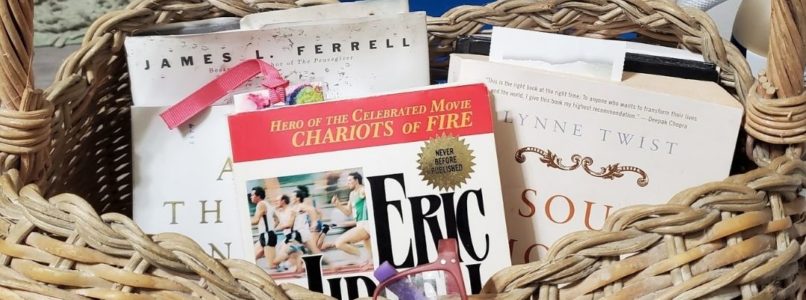

 The trip was a mixed bag, if I am honest. The kids and I had some great times, and I kept Gus worn out. : ) He had one nap and wanted another Saturday, but we were busy. This from a boy who has all but given up naps.
The trip was a mixed bag, if I am honest. The kids and I had some great times, and I kept Gus worn out. : ) He had one nap and wanted another Saturday, but we were busy. This from a boy who has all but given up naps.
 I have been thinking back to 2015. In February of that year, I had a friend who turned 111. You read that right, 111! She lived with her daughter, who was 87. Anna was in good health and could get around with her walker; she bathed herself, fed herself, and was as sharp as a tack. Anna is gone now, but caring for my mom, who is turning 91 in March, made me think back to some important things I learned about management vs. relationship from Anna and her daughter.
I have been thinking back to 2015. In February of that year, I had a friend who turned 111. You read that right, 111! She lived with her daughter, who was 87. Anna was in good health and could get around with her walker; she bathed herself, fed herself, and was as sharp as a tack. Anna is gone now, but caring for my mom, who is turning 91 in March, made me think back to some important things I learned about management vs. relationship from Anna and her daughter.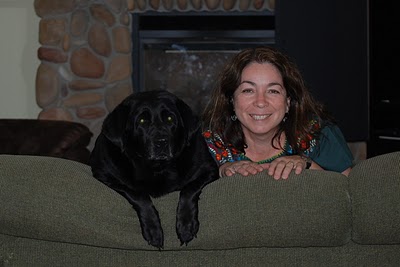
 I knew a BIG black dog named Majestic. He belonged to my friend Cathy. I am sure that in his prime, he was majestic. But when I knew him, he was far along in age and had begun to slow down…a lot! His hips hurt, and his eyesight had gone.
I knew a BIG black dog named Majestic. He belonged to my friend Cathy. I am sure that in his prime, he was majestic. But when I knew him, he was far along in age and had begun to slow down…a lot! His hips hurt, and his eyesight had gone.
 I want to share a remarkable experience and a dear friend with you. I got an email from Livia Pewtress asking me to take a test online to see my mindset quotient. I don’t do much of this type of thing anymore, as full-time caregiving doesn’t leave much space in my life. So, I almost hit delete but had a feeling I should take the test.
I want to share a remarkable experience and a dear friend with you. I got an email from Livia Pewtress asking me to take a test online to see my mindset quotient. I don’t do much of this type of thing anymore, as full-time caregiving doesn’t leave much space in my life. So, I almost hit delete but had a feeling I should take the test.
 Wise people seek wise counsel.
Wise people seek wise counsel.
 I heard something on TV recently, of all places, and I thought it was worth passing on because the truth is, when you do work outside of your family, regardless of what it is, it is tough to ‘be home’ and leave that work at work.
I heard something on TV recently, of all places, and I thought it was worth passing on because the truth is, when you do work outside of your family, regardless of what it is, it is tough to ‘be home’ and leave that work at work.
 I have a friend, Ann, who has taught children with special needs for 16 years. I have been in her classroom, and she is terrific. But this year, she retired, and her kids miss her.
I have a friend, Ann, who has taught children with special needs for 16 years. I have been in her classroom, and she is terrific. But this year, she retired, and her kids miss her.
 I went to the grocery store very early in the morning. The day was cold, 18 degrees, so I put on gloves. In the store, I realized I couldn’t open the produce bags with gloves on and stuffed them in my pocket.
I went to the grocery store very early in the morning. The day was cold, 18 degrees, so I put on gloves. In the store, I realized I couldn’t open the produce bags with gloves on and stuffed them in my pocket.